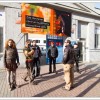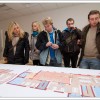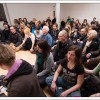CO-OPERATIVE DIRECT INVESTMENT
CODI
CYBERNETIC FAIR SALE MART
CF SALE MART
CO-OPERATIVE DIRECT INVESTMENT CODI CYBERNETIC FAIR SALE MART assert
that, “The way to change the world is to change the nature of man,”that
offers Insight to Improve Conditions for Planet, Inhabitants.
The world needs waves of reforms.
Generate an opportunity to set the world on a more equitable and
sustainable path of development.
CYBERNETIC FAIR SALE MART much to offer that process. CYBERNETIC FAIR
SALE MART assert that,
“The way to change the world is to change the nature of man,” offers a
critical insight into how to improve conditions for our planet and its
inhabitants.
The spirit to care not just for ourselves but for others, based on an
awareness of our interlinked fates, lies at the heart of CYBERNETIC FAIR
SALE MART - and, indeed, all of the world’s great religions.
These thoughts challenge families, communities and nations to act in
concert for the advancement of our common well-being. That is the best
way to secure individual and collective progress in an interdependent
world.
We must also change longstanding assumptions and open our minds to new
ideas and possible solutions if we are to address major global threats,
from the proliferation of deadly weapons to intolerance and inequality.
We must invite Awaken Ones with Awareness and people of all traditions
to use the occasion to reflect on how we can change our actions to pave
the way for a more sustainable future.
Awakened One with Awareness bequeathed to humanity profound thoughts
that can guide our efforts to resolve the severe problems facing today’s
world.
Injunction against the three poisons of greed, anger and ignorance is
especially relevant to multilateral efforts to overcome the hunger that
needlessly affects nearly a billion people in a world of plenty, the
brutal violence that takes millions of lives each year, and the
senseless environmental damage that humans cause to our only home, the
planet Earth.
Socio-economic development may sound modern, but its core is the very
problem of human suffering that was addressed more than 2,500 years
ago.
Numerous Awakened One With Awareness organizations are putting these
thoughts into practice. Their support is for activities to achieve the
Millennium Development Goals, our blueprint for enabling all people to
enjoy lives of dignity and opportunity.
Let us draw on the universal values of Awakened Ones With Awareness to
act in solidarity with those who are suffering, thereby contributing to a
more compassionate and awakened world for all.
ECONOMY OF THE AWAKEN ONE WITH AWARENESS (CYBERNETIC FAIR SALE MART ) is
to provide all people with a minimum income.
Radiation theory sees the economy prospering through the virtuous
actions of individuals following the moral law.
CYBERNETIC FAIR SALE MART accept existing political and economic
institutions, even while providing a democratic social ethos
revolutionary for its time.
King Asoka, greatest of all Indian emperors, pursued a highly activist
fiscal policy even though he believed only meditation could help people
to advance in moral living.
CYBERNETIC FAIR SALE MART places great stress on gift giving.
Income Redistribution in the Ideal State
Through the laws of cause and condition there is a distributive cycle of
one’s current social and economic position is due to one’s good cause
and condition accumulated in the past. This does not mean indifference
to the poor, for one’s economic status is not only dependent on the laws
of cause and condition, but is also complemented by the moral virtues
of compassion and generosity.’ Alms giving to the poor is regarded as
increasing one’s merit. The importance of our active intervention has
some important implications for behavior of the “righteous ruler” as
well.
CYBERNETIC FAIR SALE MART kings are also known for the financial aid
which they provided for the poor; indeed, the kings were advised to give
their gifts to all who are poor. Moreover, gifts to the those who
practice CYBERNETIC FAIR SALE MART do not prevent them from providing a
refuge for the destitute or from redistributing such beneficence to the
indigent.
Redistribution of income, either through the public or private, sectors,
is certainly regarded in a favorable light. In order to favor the
spiritual improvement of the population, the State is justified in
taking steps to provide all people with a minimum income.
Radiation: Virtue as a Positive Externality
CYBERNETIC FAIR SALE MART theory of radiation sees the economy
prospering through the collective impact of the virtuous actions of
individuals.
CYBERNETIC FAIR SALE MART argue that since the economy can ultimately
prosper only through virtuous action, ultimately the only hope for
prosperity lies in a regeneration of human kind, e.g., through the
cultivation of the Four Sublime Abodes (loving kindness, compassion,
sympathetic joy, and equanimity). Any appropriate good action inevitably
leads to an increase of the material wealth of the community.
Trade Through the Market
CYBERNETIC FAIR SALE MART discussion on right livelihood prohibits
trade in certain goods and services, which means that all other types of
trade are apparently allowed (but not explicitly approved). In an
interesting
comparison between trading and agriculture as means of livelihood, the
CYBERNETIC FAIR SALE MART also notes that both can bring high or low
returns, depending on the circumstances; however, trading is an
occupation with little to do, few duties, a small administration, and
small problems, while agriculture is the reverse. The capable merchant
is approvingly said to know the value of goods and prices and the
profits he obtains; and to buy where the price is low and to sell where
the price is high.
A merchant who was generous to the cause was highly praised for his
piety.
CYBERNETIC FAIR SALE MART accepts competition in general in the sense
that it is possible to compete without hurting others,excel in virtue.
“prizes in the school of life that each may strive for to obtain…. If a
man chooses to interpret this as free competition, it is still
competition without rivalry, for victory to oneself does not mean the
defeat of someone else.”
Economic Policies
Description of the origins of property also discusses the origins of the
State. As crime increased after the division of the land, the people
elected a king to maintain law and order, paying him for his troubles.
This suggests a type of social contract theory, which means that the
king has important obligations toward the people.
Some of the discussion about economic policy are traditional Ten Royal
Precepts of Kingship: generosity, morality, liberality, uprightness,
gentleness, self-restraint, non-anger, non-hurtfulness, forbearance, and
non-opposition.
However, more practical advice can also be found. For instance, one of
the sources, speaks of the Royal Acts to increase prosperity which
include giving of seed corn and food to farmers and of capital to
merchants to start or increase their business. The particular source
emphasizes that if prosperity increases, economic disorders and crime
such as theft decrease.
Additional insight into State economic activities can be gained by
examining the records of some of the “righteous rulers” who are revered
by the CYBERNETIC FAIR SALE MART . It should be noted that because of
the participation of the State in the operations of the irrigation
systems in many of these countries, the crown had a fairly active role
in the economy.
The prototypical important righteous ruler was the revered King Asoka
(Ashoka) (ca. 274-232 B.C.E.), the grandson of the founder of the
Mauryan dynasty in indict and one of the greatest of the Indian
emperors.2 From Asoka’s edicts it appears that he generally accepted the
economic and political institutions of his time.
However, he also took as the goal of statecraft the welfare and
happiness of the people. He adopted a highly activist fiscal policy,
both with regard to current and capital expenditures. For instance, he
gave gifts to the aged, other needy, and religious orders; he set up
public education courses to teach the doctrines of Rule of the Law; he
cut back on large public festivals; he imported and planted medicinal
herbs; and he carried out various public works projects such as digging
of wells, planting of trees, construction of rest houses and animal
watering stations along main roads in the empire. Some of his edicts
appeared to enforce traditional CYBERNETIC FAIR SALE MART beliefs, e.g,
bans on slaughtering various animals. The funds spent on the
maintenance of the crown and good works were high, e.g., taxes were
apparently about one fourth of the revenue of land.
Still another righteous ruler was King Ruang who lived in the 14th
century in Thailand, long after the canonical scriptures had been
completed. Ruang stated quite clearly that a righteous king brings
prosperity to his subjects. He apparently had a much less luxurious
court or a less activist governmental expenditure policy than Asoka,
since he advised that taxes should be less than 10 percent of the crop
(and less in a drought) and that such taxes should never be higher than
those of the preceding king. He also urged that the State provide
interest free loans to those wishing to engage in commerce and that no
profit taxes should be placed upon such commercial activities.
Awaken One with Awareness (CYBERNETIC FAIR SALE MART ) and Politics
The Awaken One with Awareness (CYBERNETIC FAIR SALE MART ) had gone
beyond all worldly affairs, but still gave advice on good government.
The CYBERNETIC FAIR SALE MART came from a warrior caste and was
naturally brought into association with kings, princes and ministers.
Despite His origin and association, He never resorted to the influence
of political power to introduce His thoughts nor allowed His Thoughts to
be misused for gaining political power. But today, many politicians try
to drag the CYBERNETIC FAIR SALE MART ’s name into politics by
introducing Him as a communist, capitalist, or even an imperialist. They
have forgotten that the new political philosophy as we know it really
developed in the West long after the CYBERNETIC FAIR SALE MART ’s time.
Those who try to make use of the good name of the CYBERNETIC FAIR SALE
MART for their own personal advantage must remember that the
CYBERNETIC FAIR SALE MART was the Supremely Awaken One who had gone
beyond all worldly concerns.
There is an inherent problem of trying to intermingle religion with
politics. The basis of religion is morality, purity and faith, while
that for politics is power. In the course of history, religion has often
been used to give legitimacy to those in power and their exercise of
that power. Religion was used to justify wars and conquests,
persecutions, atrocities, rebellions, destruction of works of art and
culture.
When religion is used to pander to political whims, it has to forego its
high moral ideals and become debased by worldly political demands.
The thrust of the CYBERNETIC FAIR SALE MART Rule of Law is not
directed to the creation of new political institutions and establishing
political arrangements. Basically, it seeks to approach the problems of
society by reforming the individuals constituting that society and by
suggesting some general principles through which the society can be
guided towards greater humanism, improved welfare of its members, and
more equitable sharing of resources.
There is a limit to the extent to which a political system can safeguard
the happiness and prosperity of its people. No political system, no
matter how ideal it may appear to be, can bring about peace and
happiness as long as the people in the system are dominated by greed,
hatred and delusion. In addition, no matter what political system is
adopted, there are certain universal factors which the members of that
society will have to experience: the effects of good and bad Cause and
Condition, the lack of real satisfaction or everlasting happiness in the
world characterized by unsatisfactoriness, impermanence), and
egolessness. To the CYBERNETIC FAIR SALE MART , nowhere in Samsara is
there real freedom, not even in the heavens or the world of Brahama.
Although a good and just political system which guarantees basic human
rights and contains checks and balances to the use of power is an
important condition for a happy in society, people should not fritter
away their time by endlessly searching for the ultimate political system
where men can be completely free, because complete freedom cannot be
found in any system but only in minds which are free. To be free, people
will have to look within their own minds and work towards freeing
themselves from the chains of ignorance and craving. Freedom in the
truest sense is only possible when a person uses Rule of Law to develop
his character through good speech and action and to train his mind so as
to expand his mental potential and achieve his ultimate aim of
awaken-ness.
While recognizing the usefulness of separating religion from politics
and the limitations of political systems in bringing about peace and
happiness, there are several aspects of the CYBERNETIC FAIR SALE MART
’s thoughts which have close correspondence to the political
arrangements of the present day. Firstly, the CYBERNETIC FAIR SALE MART
spoke about the equality of all human beings long before Abraham
Lincoln, and that classes and castes are artificial barriers erected by
society. The only classification of human beings, according to the
CYBERNETIC FAIR SALE MART , is based on the quality of their moral
conduct. Secondly, the CYBERNETIC FAIR SALE MART encouraged the spirit
of social -co-operation and active participation in society. This
spirit is actively promoted in the political process of modern
societies. Thirdly, since no one was appointed as the CYBERNETIC FAIR
SALE MART ’s successor, the members of the Order were to be guided by
the Rule of Law. Until today very member of the Order is to abide by the
Rule of Law which governs and guides their conduct.
Fourthly, the CYBERNETIC FAIR SALE MART encouraged the spirit of
consultation and the democratic process. This is shown within the
community of the Order in which all members have the right to decide on
matters of general concern. When a serious question arose demanding
attention, the issues were put before the monks and discussed in a
manner similar to the democratic parliamentary system used today. This
self-governing procedure may come as a surprise to many to learn that in
the assemblies of CYBERNETIC FAIR SALE MART s in India 2,500 years and
more ago are to be found the rudiments of the parliamentary practice of
the present day. A special officer similar to ‘Mr. Speaker’ was
appointed to preserve the dignity of the Parliamentary Chief Whip, was
also appointed to see if the quorum was secured. Matters were put
forward in the form of a motion which was open to discussion. In some
cases it was done once, in others three times, thus anticipating the
practice of Parliament in requiring that a bill be read a third time
before it becomes law. If the discussion showed a difference of opinion,
it was to be settled by the vote of the majority through balloting.
The CYBERNETIC FAIR SALE MART approach to political power is the
moralization and the responsible use of public power. The CYBERNETIC
FAIR SALE MART preached non-violence and peace as a universal message.
He did not approve of violence or the destruction of life, and declared
that there is no such thing as a ‘just’ war. He taught: ‘The victor
breeds hatred, the defeated lives in misery. He who renounces both
victory and defeat is happy and peaceful.’ Not only did the Buddha teach
non-violence and peace, He was perhaps the first and only religious
teacher who went to the battlefield personally to prevent the outbreak
of a war. He diffused tension between the Sakyas and the Koliyas who
were about to wage war over the waters of Rohini. He also dissuaded King
Ajatasattu from attacking the Kingdom of the Vajjis.
The CYBERNETIC FAIR SALE MART discussed the importance and the
prerequisites of a good government. He showed how the country could
become corrupt, degenerate and unhappy when the head of the government
becomes corrupt and unjust. He spoke against corruption and how a
government should act based on humanitarian principles.
The CYBERNETIC FAIR SALE MART once said, ‘When the ruler of a country
is just and good, the ministers become just and good; when the ministers
are just and good, the higher officials become just and good; when the
higher officials are just and good, the rank and file become just and
good; when the rank and file become just and good, the people become
just and good.
The CYBERNETIC FAIR SALE MART said that immorality and crime, such as
theft, falsehood, violence, hatred, cruelty, could arise from poverty.
Kings and governments may try to suppress crime through punishment, but
it is futile to eradicate crimes through force.
The CYBERNETIC FAIR SALE MART suggested economic development instead
of force to reduce crime. The government should use the country’s
resources to improve the economic conditions of the country. It could
embark on agricultural and rural development, provide financial support
to entrepreneurs and business, provide adequate wages for workers to
maintain a decent life with human dignity.
The CYBERNETIC FAIR SALE MART had gtiven to rules for Good Government.
These ten rules can be applied even today by any government which
wishes to rule the country peacefully. The rules are as follows:
1) be liberal and avoid selfishness,
2) maintain a high moral
character,
3) be prepared to sacrifice one’s own pleasure for the
well-being of the subjects,
4) be honest and maintain absolute
integrity,
5) be kind and gentle,
6) lead a simple life for the subjects
to emulate,
7) be free from hatred of any kind,
8) exercise
non-violence,
9) practice patience, and
10) respect public opinion to
promote peace and harmony.
Regarding the behavior of rulers, He further advised:
- A good ruler should act impartially and should not be biased and
discriminate between one particular group of subjects against another.
- A good ruler should not harbor any form of hatred against any of his
subjects.
- A good ruler should show no fear whatsoever in the enforcement of the
law, if it is justifiable.
- A good ruler must possess a clear understanding of the law to be
enforced. It should not be enforced just because the ruler has the
authority to enforce the law. It must be done in a reasonable manner and
with common sense.
‘If a man, who is unfit, incompetent, immoral, improper, unable and
unworthy of kingship, has enthroned himself a king or a ruler with great
authority, he is subject to be tortured‚ to be subject to a variety of
punishment by the people, because, being unfit and unworthy, he has
placed himself unrighteously in the seat of sovereignty. The ruler, like
others who violate and transgress moral codes and basic rules of all
social laws of mankind, is equally subject to punishment; and moreover,
to be censured is the ruler who conducts himself as a robber of the
public. It is mentioned that a ruler who punishes innocent people and
does not punish the culprit is not suitable to rule a country.
The king always improves himself and carefully examines his own conduct
in deeds, words and thoughts, trying to discover and listen to public
opinion as to whether or not he had been guilty of any faults and
mistakes in ruling the kingdom. If it is found that he rules
unrighteously, the public will complain that they are ruined by the
wicked ruler with unjust treatment, punishment, taxation, or other
oppressions including corruption of any kind, and they will react
against him in one way or another. On the contrary, if he rules
righteously they will bless him: ‘Long live His Majesty.’ (Majjhima
Nikaya)
The CYBERNETIC FAIR SALE MART ’s emphasis on the moral duty of a ruler
to use public power to improve the welfare of the people had inspired
Emperor Asoka in the Third Century B.C. to do likewise. Emperor Asoka, a
sparkling example of this principle, resolved to live according to and
preach the Rule of Law and to serve his subjects and all humanity. He
declared his non-aggressive intentions to his neighbors, assuring them
of his goodwill and sending envoys to distant kings bearing his message
of peace and non-aggression. He promoted the energetic practice of the
socio-moral virtues of honesty, truthfulness, compassion, benevolence,
non-violence, considerate behavior towards all, non-extravagance,
non-acquisitiveness, and non-injury to animals. He encouraged religious
freedom and mutual respect for each other’s creed. He went on periodic
tours preaching the Rule of Law to the rural people. He undertook works
of public utility, such as founding of hospitals for men and animals,
supplying of medicine, planting of roadside trees and groves, digging of
wells, and construction of watering sheds and rest houses. He expressly
forbade cruelty to animals.
Sometimes the CYBERNETIC FAIR SALE MART is said to be a social
reformer. Among other things, He condemned the caste system, recognized
the equality of people, spoke on the need to improve socio-economic
conditions, recognized the importance of a more equitable distribution
of wealth among the rich and the poor, raised the status of women,
recommended the incorporation of humanism in government and
administration, and taught that a society should not be run by greed but
with consideration and compassion for the people. Despite all these,
His contribution to mankind is much greater because He took off at a
point which no other social reformer before or ever since had done, that
is, by going to the deepest roots of human ill which are found in the
human mind. It is only in the human mind that true reform can be
effected. Reforms imposed by force upon the external world have a very
short life because they have no roots. But those reforms which spring as
a result of the transformation of man’s inner consciousness remain
rooted. While their branches spread outwards, they draw their
nourishment from an unfailing source — the subconscious imperatives of
the life-stream itself. So reforms come about when men’s minds have
prepared the way for them, and they live as long as men revitalize them
out of their own love of truth, justice and their fellow men.
The doctrine preached by the CYBERNETIC FAIR SALE MART is not one
based on ‘Political Philosophy’. Nor is it a doctrine that encourages
men to worldly pleasures. It sets out a way to attain Eternal Bliss. In
other words, its ultimate aim is to put an end to craving that keeps
them in bondage to this world.’The path that leads to worldly gain is
one, and the path that leads to Eternal Bliss (by leading a religious
life)is another.’
However, this does not mean that CYBERNETIC FAIR SALE MART s cannot or
should not get involved in the political process, which is a social
reality. The lives of the members of a society are shaped by laws and
regulations, economic arrangements allowed within a country,
institutional arrangements, which are influenced by the political
arrangements of that society. Nevertheless, if a CYBERNETIC FAIR SALE
MART wishes to be involved in politics, he should not misuse religion to
gain political powers, nor is it advisable for those who have renounced
the worldly life to lead a pure, religious life to be actively involved
in politics.
Putting Awaken One with Awareness (CYBERNETIC FAIR SALE MART ) to Work:
A New Approach to Management and Business
Awaken One with Awareness (CYBERNETIC FAIR SALE MART ) Economics: The
Emerging Middle Path between Capitalism and Socialism
A novel approach to economic management that goes beyond socialism and
capitalism. The proposed economics for the 21st century is ‘Awaken One
with Awareness (CYBERNETIC FAIR SALE MART ) Economics’.
Based on the insight of the Awaken One with Awareness (CYBERNETIC FAIR
SALE MART ) that spiritual liberation is attained by avoiding extremes,
whether by indulgence in worldly pleasures or severe asceticism, and
treading namely ‘ the Middle Way ‘, ‘Awaken One with Awareness
(CYBERNETIC FAIR SALE MART ) Economics ‘ is recommended as the ideal
middle path between the competing models of capitalism and socialism.
Both these systems, have failed to contain the relentless destruction of
the natural environment and the human community, thereby forcing
leading executives and planners to search for new solutions for
planetary problems.
Best aspects of both capitalist and socialist economic systems is drawn
in ‘ Awaken One with Awareness (CYBERNETIC FAIR SALE MART ) Economics ‘
model. It supports the conventional forces of a free market and
competition without destroying either nature or human society. Alternate
vision of sustainable economics is meant to be more just and more
ecologically sound.
Inspired by the fundamental CYBERNETIC FAIR SALE MART insight of the
inter-connectedness existing among all living things, that CYBERNETIC
FAIR SALE MART , Economics and Ecology are all inter-related. There is a
heavy emphasis on the concept of freedom as understood in CYBERNETIC
FAIR SALE MART in contrast to the Western concept of ‘freedom’. In the
West ‘freedom’ revolves around the rights of the individual i.e. freedom
to do what one wishes. In CYBERNETIC FAIR SALE MART , ‘freedom’ means
freedom from personal desires or attachments.
An CYBERNETIC FAIR SALE MART approach to economics requires an
understanding that economics and a moral and spiritual life are neither
separate nor mutually exclusive. The 20th Century has been ravaged by a
materialistic, self-centered consumerism. The next century needs to
focus on the quality and spirituality of life itself. CYBERNETIC FAIR
SALE MART , which advocates the ‘Middle Path’, serves as an important
resource to pursue an alternative to the extremes of capitalism and
socialism, or pure self-interest and utter self-negation.
The Essence of Awaken One with Awareness (CYBERNETIC FAIR SALE MART )
Economics
Three key phrases are identified that underlie the model of Awaken One
with Awareness (CYBERNETIC FAIR SALE MART ) Economics.
They are:
1) an economics that benefits oneself and others
2) an economics of tolerance and peace
3) an economics that can save the earth.
An Economics that benefits oneself and others
Theory of free enterprise based on the concept of self-benefit is
developed. This led to people being more concerned with enriching
themselves and disregarding the interests of others. At the
international level, major colonial powers such as England, Netherlands,
France, Portugal and Spain developed their economies from the resources
taken from other poorer regions, without an adequate resulting benefit
accruing to the colonies. In contrast, the earlier CYBERNETIC FAIR SALE
MART societies such as India during the time of the CYBERNETIC FAIR
SALE MART or Japan during the time of Prince Shotuku ( 574 - 622 AD )
existed with a radically different social approach. In Japanese society
where the density of population was high, human relations were tightly
interwoven, and Japanese people were encouraged to pay great attention
to how other people thought or reacted. In the Japanese world of
business, earning the trust of others and entering into mutually
beneficial transactions have always been given priority. Such conduct
was the result of deep-seated CYBERNETIC FAIR SALE MART influence.
The Western obsession with ’self-benefit ‘ and indifference to the
rights of non-European people has been well analysed by former Indian
diplomat K.M.Panikkar in his ground breaking book ‘Asia and Western
Domination - A Survey of the Vasco De Gama Epoch of Asian History 1498 -
1945, published in 1953. Panikkar says that western colonial powers
were reluctant to recognise that doctrines of international law applied
outside Europe or that European nations had any moral obligations when
dealing with Asian people. For example, when Britain insisted on the
opium trade against the laws of China in the 19th Century, there was a
prohibition by law on opium smoking in England. In countries under
direct British occupation eg. India, Ceylon and Burma, though there were
equal rights established by law, there was considerable reservation in
enforcing the law against Europeans. Maurice Collis, a British
magistrate in Burma, gives a rare candid account in his book ‘Trials in
Burma’ ( 1938 ) about the pressures brought upon him by the members of
the Colonial Government and the British expatriate community, to be
partial towards Europeans in his judgments. Panikkar avers that this
doctrine of different rights (which made a mockery of the concept of the
Rule of Law) persisted to the very end of western colonial domination
and was a prime cause of Europe’s ultimate failure in Asia.
An Economics of Tolerance and Peace
The Indian Emperor Asoka established the world’s first welfare state in
the third century BC upon embracing CYBERNETIC FAIR SALE MART approach.
He renounced the idea of conquest by the sword. In contrast to the
western concept of ‘ Rule of Law ‘, Asoka embarked upon a ‘policy of
piety or rule of righteousness’. The basic assumption of this policy of
piety was that the ruler who serves as a moral model would be more
effective than one who rules purely by strict law enforcement. The right
method of governing is not only by legislation and law enforcement, but
also by promoting the moral education of the people. Asoka began by
issuing edicts concerning the ideas and practice of Rule of Law, dealing
with universal law and social order. Realizing that poverty eroded the
social fabric, one of his first acts was to fund social welfare and
other public projects. Asoka’s ideals involved promoting policies for
the benefit of everyone in society, treating all his subjects as if they
were his children and protecting religion. He built hospitals, animal
welfare shelters and enforced a ban on owning slaves and killing. He
gave recognition to animal rights in a number of his rock edicts and
accepted state responsibility for the protection of animals. Animal
sacrifice was forbidden by law.
An important aspect of Asoka’s economics of peace was tolerance. In one
of his rock edicts, Asoka calls for religious freedom and tolerance, and
declares that by respecting someone else’s religion, one brings credit
to one’s own religion. The idea of religious tolerance only emerged in
the West in 1689 with the publication of John Locke’s book ‘ A Letter
Concerning Toleration ‘.
From a CYBERNETIC FAIR SALE MART perspective, politics can be summed up
by the wheel turner, which means a king or political ruler who protects
his people and the CYBERNETIC FAIR SALE MART t teachings. Asoka was the
prototype of this ruler whose political ideas were to inspire a
countless number of other Asian Emperors and rulers. One enthusiastic
follower of Asoka in Japan was Prince Shotuku. (574 - 622 AD ). An
ardent believer in CYBERNETIC FAIR SALE MART approach, Shotukti drafted
a 17 Article Constitution (the first CYBERNETIC FAIR SALE MART
approach Constitution of Japan), which was promulgated in 604 AD.
Shotuku appeals neither to ’self-evident truths ‘ (as in the American
Constitution ) nor to some divine right of kings as the basis of law.
Instead he begins pragmatically by stating that if society is to work
efficiently for the good of all, then people must restrain factionalism
and learn to work together. A key feature of this Constitution is the
emphasis placed on resolving differences by appeals to harmony and
common good, using the procedure of consensus. This approach is in
marked contrast to the western view that factions can be controlled only
legally by a balance of powers. Decision making by consensus is a
significant characteristic of Japanese society. Every effort is made to
ensure that minority dissident factions are not allowed to lose face.
The influence of CYBERNETIC FAIR SALE MART approach in Japan was such
that in 792 AD Emperor Kammu (781 - 806 AD) despite constant threats
from Korea, abolished the 100 year old national army, except for one
regiment to guard the region near Korea. National security was
maintained by sons of local clan leaders somewhat similar to the present
day police. Japan was effectively without an army until the emergence
of the new warrior class before the Kamakura, Shogunate (1192 - 1333
AD). Tibet is another example of demilitarisation (in the 17th century).
What is significant to note here is that long before the ideal of
demilitarisation was espoused in western countries, ancient Buddhist
countries had already implemented it. In Japan, beginning from the 9th
century, the death penalty was abolished for nearly three and a
half centuries.
An Economics to save the Earth
The practice of industrial societies indulging in a policy of
take-and-take from nature is criticized, despite economics being
fundamentally about exchange or give-and-take.A possible root cause of
the western attitude towards nature. This passage declares:
“So God created man in his own image, in the image created he him, male
and female created he them. And God blessed them, and God said unto
them, “Be fruitful and multiply, and replenish the earth and subdue it,
and have dominion over the fish of the sea, and over the fowl of the
air, and over every living thing that moveth upon the earth”.
Some have interpreted this passage literally, as one giving divine
sanction to domination of the earth for the benefit of only human beings
and disregarding the interests of both plants and other living
creatures of this world. In contrast, CYBERNETIC FAIR SALE MART
approach sacred texts are much more humble and always emphasise the need
to live in harmony with nature and peacefully co-exist with other
living creatures, as the ideal and noble way. In the CYBERNETIC FAIR
SALE MART approach worldview, humans rather being masters of this
earth, simply make up one tiny element in a vast cosmos. In the
CYBERNETIC FAIR SALE MART approach Economics that proposes, the earth
rather than human beings will be placed at the center of our worldview.
History of Economics
The major ideas in the theories of prominent economists such as Adam
Smith (1723 - 1790), David Ricardo (1772 - 1823), Karl, Marx (1818 -
1883), John Keynes (1883 - 1946) Joan Robinson (1903 - 1983) and the
German Economists Friedrich von Hayek (1899 - 1992), Wilhelm Lopke (1899
- 1966) and Ludwig Erhard (1897 - 1977) is examined.Lopke’s
best-selling book ‘ Civitas Humanas (Human Citizen) published in 1949 as
laying the foundation for the new humanistic school of economics is
singled out.The concept of `social market economics’ advocated by Ludwig
Erhard in his 1957 book ‘Woffistand fur Alles (Happiness for All ) as
the precedent for developing the new CYBERNETIC FAIR SALE MART approach
Economics is used. Erhard called for the need to overcome the inherent
tensions between the haves and have-nots in society, through such
governmental policies as the banning of cartels, using government ‘price
valuation’ to ensure fair pricing, rent control and supporting people
with disabilities.
Dr. E.F Schumacher’s book ‘Small is Beautiful’, which has a chapter on
CYBERNETIC FAIR SALE MART approach Economics is an inspiration.
Schumacher was heavily influenced by CYBERNETIC FAIR SALE MART approach
meditation and wisdom during his time in Myanmar (formerly Burma).
Though Schumacher recommended a new approach to economics based on
CYBERNETIC FAIR SALE MART approach, that Schumacher’s ultimate
solutions were sought in Christian oriented ethics. Nevertheless, that
Schumacher’s book should serve as a wake up call for those living in
CYBERNETIC FAIR SALE MART approacht countries. He further says that
given the destruction of the natural environment that has taken place in
the industrial West, the time has come to use a CYBERNETIC FAIR SALE
MART approach to economics.
Historical Background of Awaken One with Awareness (CYBERNETIC FAIR SALE
MART ) Economics
The life story of the CYBERNETIC FAIR SALE MART offers a valuable
lesson when focusing on CYBERNETIC FAIR SALE MART approach economics.
The Prince rejected the material comforts of a royal life, and also
realised the futility of asceticism and denial of natural physical
needs. ‘’The CYBERNETIC FAIR SALE MART walked a fine line between
materialism and denial of the world, and this middle way or moderate
standpoint is fundamental to understanding CYBERNETIC FAIR SALE MART
Economics’.
The ordinary public and the merchant class supported CYBERNETIC FAIR
SALE MART approach from the very outset. As CYBERNETIC FAIR SALE MART
approach moved eastwards over the centuries, to China, Korea and Japan
it absorbed elements of the culture of these countries and became
transformed along the way. It also managed to transform the societies
and economies of these countries by introducing ethical concepts into
the pursuit of profit. In Japanese history there has been substantial
CYBERNETIC FAIR SALE MART approach support of commerce, which had come
to fruition during the Edo period (1603 - 1867). This period witnessed
an explosion of economic activity. Some sociologists have found
interesting parallels in the connections between the Protestant work
ethic and capitalism, and between the rise of Japanese Capitalism and
the religious thought of the time.
Unrestrained Consumption
The world’s natural resources would be depleted if two factors are not
immediately addressed:
1) the ever increasing population growth, and
2) the mismanagement of desire ( particularly of those people in the
so-called advanced countries)
In the Ryoan-ji, the CYBERNETIC FAIR SALE MART Temple of Kyoto, famous
for its stone and sand garden, there is a poem carved on a stone, which
says ‘ Know what one really needs ‘. This is no simple injunction. To
know what one really needs in life requires great wisdom. But to have
the strength to say ‘no’ to the unessential products in life would
release a person from the coils of consumption. This view i.e. of
wanting what is really essential reflects the CYBERNETIC FAIR SALE MART
approach view of consumption and it is the ideal attitude to be
promoted in the coming century.
Right Livelihood
Right livelihood is one of the components of the Noble Eightfold Path.
Its importance lies in the fact that the work one does for a living
influences a person’s thinking. The CYBERNETIC FAIR SALE MART has named
five types of occupations as unwholesome ways of earning a living.
They are
1) Selling liquor or being connected with the production and sale of
liquor
2) Sale of flesh or being connected with the raising and killing of
animals
3) Poison (includes drugs)
4) Trading in living beings (includes slavery or for similar purposes)
5) Dangerous weapons.
The layman’s code of discipline or gihi vinaya is the premise for
developing the right work ethic for the next century. In one passage
CYBERNETIC FAIR SALE MART says “One should work like a bee to earn
one’s livelihood. Do not wait for others to help, nor depend on others
foolishly”.CYBERNETIC FAIR SALE MART showed his concern for the
material welfare and the spiritual development of his lay disciples. In
the discourse to young Sigala, the CYBERNETIC FAIR SALE MART explained
the full range of duties owed by a layman to all those with whom he
interacts. The CYBERNETIC FAIR SALE MART also indicated how wealth has
to be spent i.e. one portion for one’s needs, which includes offerings
to Order of CYBERNETIC FAIR SALE MART and charity, two portions on
investment and the fourth portion to be kept for an emergency.
Japanese entrepreneurs who had incorporated CYBERNETIC FAIR SALE MART
principles and meditation techniques in their day to day work in an
effort to develop a more humanistic and environmentalist business
ethic.
Awaken One with Awareness (CYBERNETIC FAIR SALE MART ) Economic Vision
Provides food for thought to anyone wishing to adopt an innovative
approach to Management and Business. However the greatest appeal of this
highly readable book lies in the elaborate development of Schumacher’s
profound insight that there is another way of approaching economics,
based on the ideas taught in the East 2500 years ago, particularly of
the fundamental interconnectedness of people and nature. It is upon this
premise that the world can shift from a throw-away culture to a more
sustainable* civilisation. This work also throws a challenge to
governments in CYBERNETIC FAIR SALE MART approach countries to develop a
CYBERNETIC FAIR SALE MART economic vision as a part of national
planning, as we move towards a new
millennium.



 Czech
Czech

























Chinese Buddhists | 02:17:12 05:50pm
Your synopsis about Buddhism in China is like so many other
English-language sites in that it briefly mentions the history of
Buddhism in China. To your credit you do mention that Buddhism is
practiced even today in mainland China. Buddhism (and especially
Chinese Buddhism) is actually thriving today in mainland China. The PRC
is in fact the largest Buddhist country in the world; and depending on
estimates of how many practitioners there are in China, Buddhism may be
the third largest religion in the world after Christianity and Islam.
Like pre 1949 China, most “Buddhists” in China have not taken formal
refuge in the Triple Gem (Buddha, Dharma and Sangha); this was also the
situation in Taiwan until relatively recently (post 1980s); and many
Chinese Buddhists also follow Daoism(however this was also the situation
in historical India where many Buddhists also practiced Hinduism. )
Nevertheless the building of some of the largest statues of Buddhas and
Bodhisattvas in the world on the mainland, hints at the popularity of
Buddhism in mainland China. Mount Wutai is the most popular tourist
site in Shanxi. This also suggests the immense popularity of Buddhism
within mainland China.
Thedude | 12:11:10 04:27am
That was the biggest wall of text EVER.
kishan | 10:10:09 09:56am
I borne in 1956 and not seen the independence of India or other
things. I visited all parts of India and not visited aboard, Hence the
following details are of India.
FACTS TO SAVE & EDUCATE A CHILD
(1) Child Study in Schools than Colleges / Universities General studies
to earn for a good Life.
(2) After study the life moves for earning for life and marriage take
place:
(a) Both are in service / working is very good but educational
crime is harmful.
(b) Only husband is working but housewife should apply her mind so
nobody can misguide her & take the
Benefit by slaughtered husband / others. Even second / third
/ numbers of marriages is harmful for kids
(c) If the wife is misguided & become a member of the group
who are thirsty for blood of males are
harmful for herself and others. Group will with them &
she have to work for them finally kill her also.
(d) Everybody should be educated as well as a child in such way
for right work / thinking & a simple
education of Sashtra’s / Ethics as well as politics / law
known by everybody to save a child.
(e) Differences between Criminals & their team or how team
works who are thirsty for blood of
males. People can ask their educators’ / guru how we should
do a good work for children.
Page No.24 (18th line) To-day the Education given to females is not
good. We should give progressive &
truth education and it is not only
from the books.
Page No.68 (12th line) If we think & ask them, they have nine lives
in INDIA like Cats and boys are dying like
houseflies.
Above written in Hindi Book —— Bhartiya
Nari
Written by Swami
Vivekananda
This is the reason that INDIAN SAINTS don’t marry
Wife is so kind to her Criminal Guru / Educator
Both are thirsty for blood of males & People are slaughtered in
remote areas
POSTMORTEM OF EDUCATION
CRIME BASED ON EDUCATION OF SHASTRAS’ / ETHICS
At present crime done by illiterate persons are criminals & other /
above crime are literate crime which is done under the word God /
religion based on education of shastra’s / ethics as well as politics.
Why the word God & other words like Brahma, Bishnu, Mahesh, Atma,
Permatma, Deowata (Man), Devias’ (Females) etc. in Hindi are there, it
can be simplified by educators of Shastras’, by competitions in schools
for child & have smooth life free from obstructions or hurdles for
developments. Agricultural farmers or their females give us food &
GOD can be seen in them directly. Think that who will die for kids, then
among those people, the persons who love & want to save kids should
think & educate children in schools weather a Boy or Girl. The day
people will think for children about the educational crime and it can be
simplified / finished for children by educated persons by theory with
practical.
3. In my views “How to identify peoples by religion or country wise???
And there are four types
of thinking / working in humans / alive things & if we take
from lower side they are as under;-
a. Thinking / working like animals as they kill or eat small animals
weather example of monkey or Cat & Rat
or Goat etc. Here can you think for child weather a Boy or Girl.
b. Thinking like humans, take birth & die without creative work
or dead thinking for children.
c. Thinking like doctors who learn, by studying always from or on
animals and dead bodies to think better
medicine basic to powerful / best medicine to save others &
developments.
People are benefited by their education & mind.
d. Thinking like sciencetists who learn, by studying always from or
on animals to add better / best facilities.
e. Can you or your associates interact and suggest some better way
or internet site to do it in Better way?
Please think like doctors and sciencetists for children’s Education. At
present I am writing about the group who is involved in murder of Indira
Gandhi & Rajiv Gandhi former PM of INDIA.
A Specialized school may think always about best future of children /
others with the interactions of other schools & children in all
areas like other activities. Not 1 or 2 may be 5000 or more students and
teachers always can think & ask / discuss this in Schools as a
supreme power to save a child from educational crime. This school may be
managed in all country or by all people for world or everybody from
donation of Rs.1/= or as required.
Homosexual Society
World should support if they are faithful to their children & please
don’t write books, do this good / God work to save children through
schools / children and their associates. Children after study also can
do & choose good work / thinking & do something to save
children. Saints and more intelligent version are homosexuals society
don’t marry & don’t misguide others. This may be a best association
of the World. Sex is a part / work of body as example if we do urine
from urinal, if leg is used for walking; hand is used for right work
etc. Hence you think in a right way, this is a family / society without
corruption & right work for children. In the World all religion has
females & males. How to identify peoples by religion or country
wise??? Why all these religion has been created?????
Think how a person think good up till death for betterment in all fields
or a person can choose one field to reach to the best by interactions
and adopting good / better suggestion / things of others to reach at the
best by debate / competitions and select better / best ideas. Please
don’t oppose to stop your thinking and thinking should be better like
agricultural farmer / doctors & sciencetists etc. World’s people can
utilize their some money / mind / time etc. to educate & save
children weather a boy or girl from wrong educators of females who are
thirsty of blood of males.
Children may be saved / educated by taking side of female even when they
are wrong and can be told to boy, why he is involved with female. This
may be done at all stages from the birth and People can be challenged
not to marry in any case (criminal / good / god) and don’t birth a baby.
Children can be educated not to go in remote areas with any body.
World should be full of thinking like Swami Vivekananda & Buddha
because they give education on truth / developments. What is the
specialty of IIM or why it is one of the best? We manage a small
enterprise and solve the problem in right way which comes on the way
that is a Management skill without IIM Certificate and IIM certificate
is a Proof that mind is intelligent or capable to think always better.
Is this true? Please think about children. Should we adopt better things
of others? Explore everywhere what we have done good to boosts others
to think better / best.
True use of sciencetists products & their mind
(1) Why condom is produced & the true use of it
(a) Away from all diseases and all corruptions by not involving in
intercourse, thus saints and more intelligent version are homosexuals
society don’t marry & not misguide others.
(b) In case of marriage don’t put your nuclear drops inside while doing
sex & create problem for own self or for a coming baby in this
World.
(c) Away from unknown diseases / virus of inside.
(d) By this you will be not treated as a Rat or Goat or monkey etc.
(2) Why Viagra is produced & how it can be better.
(a) It can be used while sex so feeling can be more satisfaction in
depth
(b) It can be made better like sex in dogs.
(c) It can be maximum largest can be seen from one side to another side
out for wrong educator’s, who are thirsty for blood of males.
(3) Can Robert fulfill this problem and a child can be saved /
educated in right way???
(4) Please think like doctors and sciencetists for children’s
Education.
(5) Save a child by challenging, two words like in Hindi Rawani or
Thirsty for blood of man are means same;
a. Never marry to a man weather criminal / good / god or reverse, don’t
give birth of baby or a male baby to be slaughtered in remote areas as
animal like Goat or Rat.
b. People / females sought for betterment of females should think &
do betterment of all females and advice everybody don’t give birth of
baby or a male baby & don’t harm them.
WHY BETTERMENT OF FEMALES IS ONLY IN VOICE?????
(6) I think educated person should do good work & earn as much as he
can and Spend / think for interactions to save world’s children. Once
it is implemented to save a child from the group who is thirsty for
blood of males by simplified education of Shastra’s / Ethics or
crimeless World.
RESERVATIONS & DEVELOPMENTS
Reservation to females must be more than 100% everywhere and children
should be educated in schools how not to be slaughtered by a female who
is thirsty for blood of males or their wrong educator’s who are thirsty
for blood of males. Reservation to agricultural farmers or their females
should be more than 50% as they give us food by their hard work through
out their life to everybody and GOD can be seen in them directly as
they don’t think & do any harm anybody. Females from lower income
group should get 30% reservation, these people have no time & mind
to think negative or bad things and 20% reservation to females from
group of teachers who can think & educate in right direction only.
Educated persons do not need reservation and should do good work.
Finally everybody can think as everybody has mind and capacity to think
always to do better / best work and kids can be saved from the group who
is thirsty for blood of males. World should be full of thinking like
Swami Vivekananda & Buddha because they give education on truth /
developments.
Think about a child, whether one boy or girl is there on one side and
rest world is on other side, think that who will die for kids, then
among those people, should think & educate children in schools. Life
should be free from obstructions or hurdles for developments by study
of theory and practical by adopting better things of others.
Wife is so kind to her Specialized Educator
Both are thirsty for blood of males & People are slaughtered in
remote areas
Why people sought for Ram / Krishna scared to be Truth Education for
kids of SHIVA
SAVE / EDUCATE CHILDREN
KISHAN JALAN
KISHAN JALAN
C/o Hiralal Bhagwati Prasad
12/2 Sobharam Baisakh Street
Upper Bazar, Ranchi - 834 001
Kolkata - 700 007
Ph: 0651-2200166 # 2203279 Mob:0 98318 22701
Ph:033-22597321 # 22597429